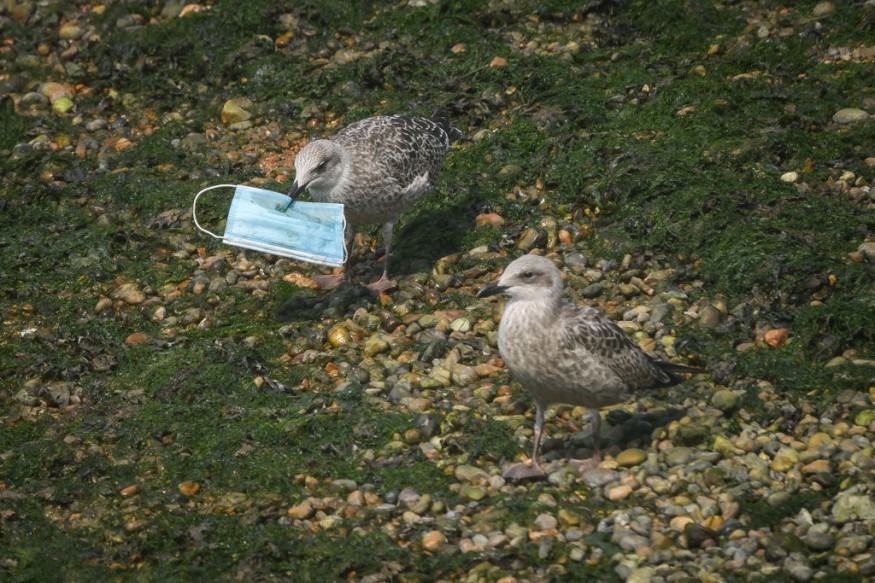COVID-19 personal protective equipment (PPE) wastes are killing wildlife across the world, according to a report. Particularly, face masks and gloves that protect people from coronavirus are proving to be a threat to birds, fishes, and other animals when thrown away.
From previous predictions of plastics increasing twofold by 2030, experts believe that the PPE waste could aggravate the number of single-use plastics that will harm the environment.
Report co-author and biologist Auke-Florian Hiemstra at the Naturalis Biodiversity Center in Leiden told CNN that these single-use items are likely to end up in the environment and start becoming a real problem. Ironically, the materials created to protect humans are harming wildlife.
Researchers said that animals get entangled or are unknowingly ingesting discarded latex gloves and disposable face masks, and some are even building their homes using the same materials.

COVID-19 Pandemic Causes Flurry of Plastic Waste
When the world was first hit by COVID-19, governments of different countries have placed various precautionary measures, such as lockdowns, restrictions on social contact, reduced mobility of goods, and reduced economic activities and businesses.
Provisionary treatment facilities were also created for COVID-19 patients, as well as limited access to hospitals and healthcare facilities by family and visitors. They also implemented mandatory quarantine for those exposed to infected people and to avoid being infected, officials have implemented mandatory wearing of PPEs.
However, from being a health crisis it quickly evolved into an economic, social, and environmental threat. The COVID-19 threat to the environment is largely undervalued with solutions that are more focused on the social and economic aspects, according to a 2020 review.
Due to the pandemic, hospitals have been throwing more wastes than usual. For instance, the King Abdullah University Hospital in Jordan produced tenfold higher medical waste or approximately 650 kg per day.
Moreover, other drastic increases in medical waste were also recorded in Catalonia, Spain, and China with an increment of 350% and 370%, respectively.
Without proper waste disposal, it is likely that this PPE waste will go to the environment and will ironically cause harm to the wildlife, opposite to their purpose to humans.
ALSO READ : 1.3 Billion Tons of Plastic Will Be in the Land, Air, and Sea by 2040 If People Don't Change Ways
PPE Waste is Killing Wildlife
The report, entitled "The effects of COVID-19 litter on animal life" published in the journal Animal Biology, said that during their data gathering, they found fish trapped in the finger of a rubber glove in the Netherlands, a penguin sporting a face mask in its stomach in Brazil, and a fox in the UK entangled in a face mask.
These are just some of the animals in the wild that became a victim of too much COVID-19 PPE waste. The researchers searched news sites and social media posts to identify the effects of the pandemic on the environment. The Guardian reported.
The first victim that they found was an American robin that got trapped in a face mask in Canada last April 2020 and found more incidents, whether it might be on land and in the sea.
They also received reports of bats being trapped in face masks in the Netherlands, a hedgehog in the UK that was entangled in a glove, as well as a monkey in Malaysia who mistook the face mask as food and tried to eat it.
They have launched a database for concerned individuals to send their reports of sightings of animals getting entangled or trapped from a PPE waste.
RELATED ARTICLE : Discarded Face Masks and PPEs End Up in Oceans
Check out more news and information on COVID-19 and Animals on Science Times.
© 2026 ScienceTimes.com All rights reserved. Do not reproduce without permission. The window to the world of Science Times.











